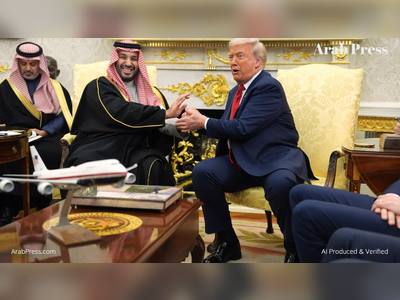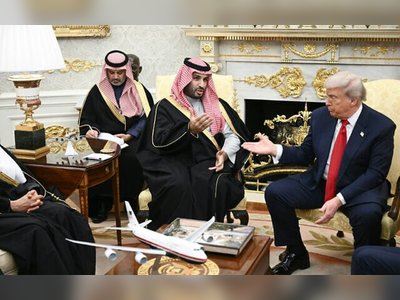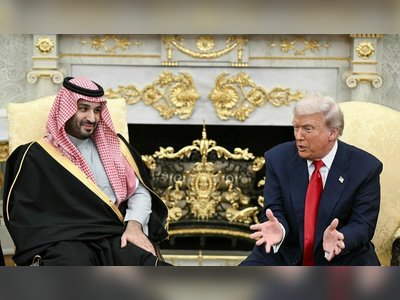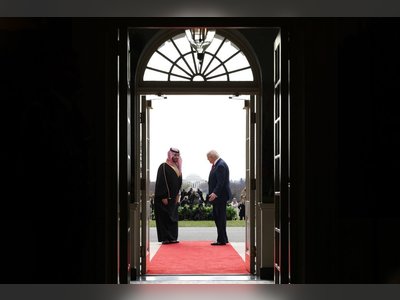
Saudi Arabia Signals Antarctic Shift: Seeks Israel Ties via Palestinian State Solution
Crown Prince Mohammed bin Salman affirms that normalization with Israel hinges on a clear two-state pathway during Washington talks
Saudi Crown Prince Mohammed bin Salman, speaking alongside U.S. President Donald Trump during a high-profile Oval Office meeting in Washington, declared that Saudi Arabia desires to become part of the Abraham Accords while insisting that any formal ties with Israel must be conditioned on a “clear path [to a] two-state solution.” The prince said the two leaders had a “healthy discussion” and vowed to prepare the “right situation as soon as possible” for normalization.
President Trump responded positively, saying that he had “very good talks” about the Abraham Accords and hinted at further discussions on the one-state vs two-state framework.
He noted that the crown prince had “a very good feeling toward the Abraham Accords.”
Saudi Arabia’s public stance underscores a strategic recalibration: the kingdom links its ambitions of regional leadership and economic diversification to advancing the Palestinian issue as a prerequisite to formalizing ties with Israel.
The condition reflects Riyadh’s long-standing policy, but its reiteration at this juncture projects a renewed emphasis on Palestinian statehood as central to any normalization deal.
Observers note that while Saudi-Israeli normalization has long been discussed behind closed doors, progress has stalled following the 2023 Gaza war and related geopolitical shifts.
Analysts argue that the kingdom’s insistence on the two-state outcome may delay any final agreement—even as both Washington and Riyadh present the matter as advancing.
Ultimately, the meeting signals a complex balancing act: Saudi Arabia seeks both the strategic and economic benefits of Israel ties—such as technology cooperation and regional security networks—while preserving its credentials as a defender of the Palestinian cause.
For the United States, the condition gives Washington a vital leverage point in the region; for Israel, it presents a diplomatic challenge given the current government’s opposition to full Palestinian statehood.
The trajectory of the coming months will likely determine whether normalization becomes a near-term breakthrough or a longer-term project tied to traction on the Palestinian question.
President Trump responded positively, saying that he had “very good talks” about the Abraham Accords and hinted at further discussions on the one-state vs two-state framework.
He noted that the crown prince had “a very good feeling toward the Abraham Accords.”
Saudi Arabia’s public stance underscores a strategic recalibration: the kingdom links its ambitions of regional leadership and economic diversification to advancing the Palestinian issue as a prerequisite to formalizing ties with Israel.
The condition reflects Riyadh’s long-standing policy, but its reiteration at this juncture projects a renewed emphasis on Palestinian statehood as central to any normalization deal.
Observers note that while Saudi-Israeli normalization has long been discussed behind closed doors, progress has stalled following the 2023 Gaza war and related geopolitical shifts.
Analysts argue that the kingdom’s insistence on the two-state outcome may delay any final agreement—even as both Washington and Riyadh present the matter as advancing.
Ultimately, the meeting signals a complex balancing act: Saudi Arabia seeks both the strategic and economic benefits of Israel ties—such as technology cooperation and regional security networks—while preserving its credentials as a defender of the Palestinian cause.
For the United States, the condition gives Washington a vital leverage point in the region; for Israel, it presents a diplomatic challenge given the current government’s opposition to full Palestinian statehood.
The trajectory of the coming months will likely determine whether normalization becomes a near-term breakthrough or a longer-term project tied to traction on the Palestinian question.










